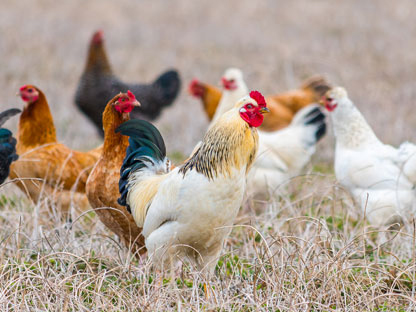With the inevitable overreaction to the current bird flu scare, and the totally unnecessary slaughter of countless healthy laying hens resulting in a predictable increase in the cost of eggs, many are wisely considering maintaining a small home flock of chickens.
A recently passed State law, HB 2325, prevents cities from enacting ordinances that ban residents of single-family homes from keeping backyard chickens. This legislation allows residents to maintain up to six hens. Cities can retain existing ordinances that allow for more than six chickens, and the law does not override local regulations, such as those concerning noise or zoning for larger lots.
Key stipulations include that the chicken coop must not exceed 200 square feet in size or 8 feet in height, and it must be cleaned at least twice a week. The law also specifies that manure must be composted to prevent insect migration, water sources need adequate overflow drainage, and feed must be stored securely to avoid attracting pests.
Chicken
manure is an excellent source of nitrogen, phosphorus, and potassium. It’s a
great fertilizer for fruit
 trees, as well as tomatoes, peppers, cucumbers, and
leafy greens. Roses, petunias, marigolds will love it too! It should be well
composted, usually 6 months to a year, before using, and will also speed up the
composting process of everything else in your compost pile due to its high
nitrogen content. If you’re not already composting, you should be.
trees, as well as tomatoes, peppers, cucumbers, and
leafy greens. Roses, petunias, marigolds will love it too! It should be well
composted, usually 6 months to a year, before using, and will also speed up the
composting process of everything else in your compost pile due to its high
nitrogen content. If you’re not already composting, you should be.
Backyard chickens provide a fresh, often organic, and humane, source of eggs, which are often considered tastier and more nutritious than store-bought varieties. Store-bought eggs can already be a month old, and must be refrigerated because they’re washed. Unwashed eggs can last about 2-3 weeks if stored in a cool place away from direct sunlight, and even up to 2 months if kept around 55 degrees. To check if an egg is fresh just place it in cool or room temperature water, and if it sinks it’s fresh, but if it floats it’s old and may no longer be edible.
Chickens are upcyclers, they can turn table scraps and unsightly produce you might throw out into healthy food. Chickens can even eat chicken and scrambled eggs. Chickens will also eat bugs in your yard.
Hens don’t lay until about 5-6 months of age, and need about 14-16 hours of sunlight each day to stimulate egg production, so plan ahead if you intend to start out with those cute fuzzy chicks purchased at the local feed supply store.
